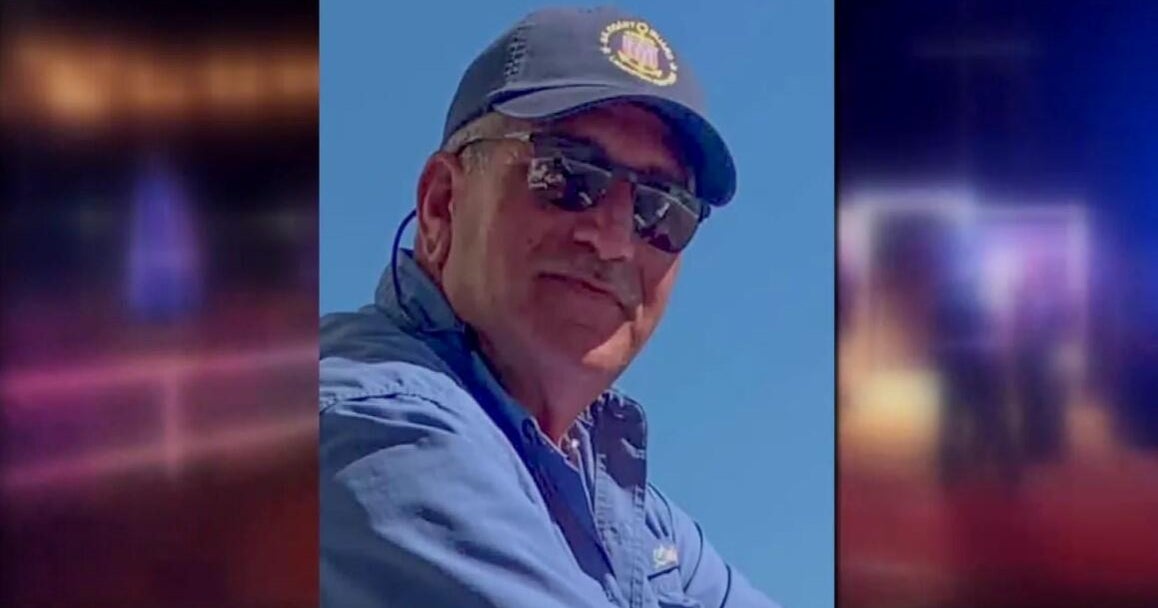Nature up close: Alligators
By "Sunday Morning" contributing videographer Judy Lehmberg.
Years ago following an unusual southeast Texas cold spell, my husband Verne and I went searching for a dead alligator, as they are sometimes killed by the cold. (I wanted the skull to display in my college biology lab.) We put our small, flat-bottom boat in at a boat dock south of our house.
We hadn't gone very far when we spotted a good-size gator floating near the edge of the bayou. It looked a little bloated as it rocked in the boat's wake.
We pulled into shore. I got out as Verne told me to throw a stick on it, to be sure it was dead. I threw a stick; the alligator didn't move. I knew it was dead. Verne said, "Get a big stick," so I found a water-soaked log, carried it in both arms, and dropped it on the alligator. That alligator erupted! It wasn't dead, it was sleeping. It slashed its head and tail, splashing water all over me. As visions of being eaten by a big gator ran through my head, I started yelling for Verne to come get me. But he couldn't because he was laughing so hard. I was so mad. I was going to die and he couldn't stop laughing.
Fast forward a few years, to a trip we took to the Florida Everglades. We really wanted to see snail kites and Verne wanted to photograph them, but the only one we could find was on the other side of a deep canal. He found a guy with an airboat who agreed to take him across for $20. Once Verne was on the other side, he stood in waist deep water with his camera on a tripod. The boat guy said he would be back in an hour. I waited on a nice dry bench enjoying the total silence and beautiful surroundings. A few minutes later I saw a 10-foot alligator slowly swimming the canal towards Verne. I thought a minute and then yelled over asking him if he remembered laughing at me while I thought I was going to be attacked by an alligator. He was concentrating hard on the snail kite and didn't seem to hear me. Thirty seconds passed. Suddenly he turned around looking. By then the gator had completely submerged. Verne didn't move. I sat on the other side laughing.
I laughed again when the guy in the airboat came back and said, "Well, you paid me $20 to take you across, how much will you pay me to bring you back?"
The American alligator is the top predator in southern swamps. It can remain motionless for hours and then erupt in a flurry of movement to catch its prey. And it isn't picky about what it eats. That is one of the reasons they've been so successful for millions of years.
Alligators play an essential role in their marsh homes. The survival of many species, including many of their prey, dependents on alligators. They hang around rookeries to catch any chick or egg that falls, but prevent other predators (such as raccoons) from swimming to the rookeries.
When the water gets low during dry winters, alligators dig holes as a refuge. Those holes provide essential habitat for many species of fish, amphibians and reptiles (the very animals alligators eat). In shallow water marshes with few deep creeks and bayous, fish can become trapped in shallow ponds. These ponds often dry to mud flats. Unless fish can find a deep area in the marsh, they die as the water dries, leaving only skeletons in the dry mud. The survivors living in alligator holes repopulate the swamp during the rainy season.
Alligators are feared by people, but they usually are not aggressive. Attacks are highest in Florida where there are around 1.3 million alligators, according to the Florida Fish and Wildlife Conservation Commission. There were 383 unprovoked alligator attacks between 1948 and 2016, with 23 fatal attacks. By comparison, there were 3,037 Florida auto deaths in 2016 alone. Humans are 25 times more likely to be killed by dogs and 50 times more likely to die from bee and wasp stings than from alligators.
Judy Lehmberg is a former college biology teacher who now shoots nature videos.
For more info:
- Judy Lehmberg (Official site)
- Judy Lehmberg's YouTube Channel
To watch extended "Sunday Morning" Nature videos click here!





